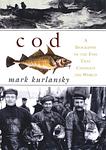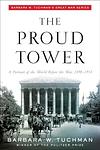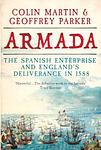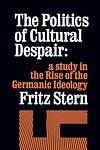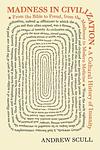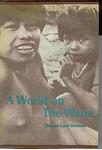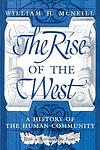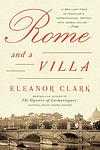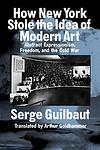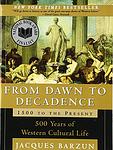The Greatest French, American "Nonfiction, European History" Books Since 1950
Click to learn how this list is calculated.
This list represents a comprehensive and trusted collection of the greatest books. Developed through a specialized algorithm, it brings together 305 'best of' book lists to form a definitive guide to the world's most acclaimed books. For those interested in how these books are chosen, additional details can be found on the rankings page.
Genres
European History is a category of books that focuses on the historical events, people, and cultures of Europe. It covers a wide range of topics, including the ancient civilizations of Greece and Rome, the Middle Ages, the Renaissance, the Enlightenment, and the modern era. This category of books explores the political, social, economic, and cultural developments that have shaped Europe over the centuries, from the rise and fall of empires to the impact of wars and revolutions. It provides readers with a deeper understanding of the rich and complex history of Europe and its influence on the world.
Countries
Date Range
Reading Statistics
Click the button below to see how many of these books you've read!
Download
If you're interested in downloading this list as a CSV file for use in a spreadsheet application, you can easily do so by clicking the button below. Please note that to ensure a manageable file size and faster download, the CSV will include details for only the first 500 books.
Download-
1. The Guns of August by Barbara Tuchman
"The Guns of August" is a detailed and engaging account of the first month of World War I. The book explores the events leading up to the war, the political and military strategies of the various countries involved, and the critical decisions that shaped the course of the conflict. It presents a vivid picture of the war's early stages, highlighting the miscalculations, miscommunications, and misunderstandings that led to one of the most devastating wars in history.
The 918th Greatest Book of All Time -
2. The Great War and Modern Memory by Paul Fussell
"The Great War and Modern Memory" is a critical analysis of the impact of World War I on the English society and culture. The author explores the war's influence on literature, language, and symbolism, arguing that the horrific experiences of the war drastically altered public perception and understanding of conflict, honor, and heroism. The book combines literary criticism, history, and social commentary to provide a comprehensive examination of the war's lasting effects on the collective memory of the English-speaking world.
The 1118th Greatest Book of All Time -
3. The Rise and Fall of the Third Reich by William L. Shirer
This book provides a comprehensive history of Adolf Hitler's Third Reich, from its inception to its downfall during World War II. The author, an American journalist who reported from Germany and Austria during the Nazi era, uses firsthand accounts, interviews, and Nazi documents to detail Hitler's rise to power, the mechanisms of the Nazi state, and the events leading to and during World War II, including the Holocaust. The book concludes with an analysis of why the Third Reich fell and the aftermath of its collapse.
The 1711th Greatest Book of All Time -
4. Cod: A Biography of the Fish that Changed the World by Mark Kurlansky
This book is a fascinating exploration of the historical, cultural, economic, and ecological impact of the codfish. It traces the role of this fish in shaping economies, sparking wars, and influencing culinary trends across centuries and continents. The book also delves into the devastating effects of overfishing and the current struggle to sustain cod populations. The narrative combines history, science, and gastronomy to present a comprehensive biography of this significant fish species.
The 2750th Greatest Book of All Time -
5. Lenin's Tomb: The Last Days of the Soviet Empire by David Remnick
This book provides an in-depth account of the final days of the Soviet Union, focusing on the period from 1989 to 1991. It explores the political, economic, and social factors that led to the collapse of the Soviet empire, including the role of key figures such as Mikhail Gorbachev, Boris Yeltsin, and others. The author, a journalist who lived in Moscow during this time, combines historical analysis with personal observations and interviews, offering a unique perspective on this significant period in world history.
The 2874th Greatest Book of All Time -
6. The Proud Tower by Barbara Tuchman
This historical work delves into the tumultuous period preceding World War I, capturing the social, political, and cultural landscape of the world from the 1890s through the early 20th century. The narrative weaves through various countries and influential figures, examining the contrasts between the wealth of the elite and the struggles of the working class, the rise of anarchism, and the complexities of pre-war diplomacy. It paints a vivid picture of an era marked by both grandeur and the simmering tensions that would eventually lead to one of the most devastating conflicts in human history.
The 3093rd Greatest Book of All Time -
7. The Armada by Garrett Mattingly
"The Armada" is a comprehensive historical account of the attempted invasion of England by the Spanish Armada in 1588. This work meticulously chronicles the political and religious turmoil of the era, the strategic planning and execution of the naval campaign by the Spanish, and the defensive maneuvers of the English under the leadership of Queen Elizabeth I. The narrative delves into the personalities of key figures, the technological and tactical aspects of 16th-century naval warfare, and the broader European context, culminating in a detailed examination of the battles and the Armada's eventual disastrous defeat, which had lasting consequences for the balance of power in Europe.
The 3093rd Greatest Book of All Time -
8. The Politics Of Cultural Despair by Fritz Stern
This book is a critical historical analysis that delves into the intellectual roots of cultural pessimism in Germany leading up to the rise of National Socialism. It examines the works and influence of three prominent conservative critics from the late 19th and early 20th centuries, who lamented the perceived decline of traditional values and the erosion of social cohesion in the face of modernity and liberalism. The author argues that their reactionary critique of contemporary culture and their yearning for a return to an idealized past laid the groundwork for the ideological underpinnings of fascism, demonstrating how cultural despair can be manipulated into political extremism.
The 3279th Greatest Book of All Time -
9. Madness And Civilization by Michel Foucault
The book is a profound and critical exploration of the history of the treatment of the mentally ill in Western society, tracing the shifting boundaries between madness and sanity from the Middle Ages to the end of the 18th century. The author argues that the way people with mental illness were treated was a reflection of the cultural, social, and intellectual mores of the time. He examines the evolution of institutions such as asylums and the role of medical and philosophical discourse in defining and managing madness, suggesting that the treatment of the mentally ill has often been a way of exerting social control rather than a genuine effort to help those suffering. The work challenges readers to reconsider the relationship between reason, unreason, and the structures of power and knowledge.
The 3279th Greatest Book of All Time -
10. A World On The Wane by Claude Lévi-Strauss
The book is a reflective account of an anthropologist's journey through the Amazon Basin, documenting the lives and customs of indigenous tribes at a time when their traditional ways were increasingly threatened by the encroachment of modern civilization. Through a series of vivid observations and analyses, the author explores the complex social structures, myths, and rituals of these societies, while also contemplating the impact of Western influence on their survival. The narrative serves as both a poignant chronicle of disappearing cultures and a critique of the forces of colonialism and globalization that contribute to the erosion of human diversity and heritage.
The 3279th Greatest Book of All Time -
11. Combats Pour L'histoire by Lucien Febvre
"Combats Pour L'histoire" is a collection of essays by a prominent historian who was a key figure in developing the Annales School of historical thought. In this work, the author passionately argues for a new approach to studying history, one that moves beyond the traditional focus on political events and great men to include a broader analysis of social and economic factors, mentalities, and the structures that shape human activity over time. The book emphasizes the importance of interdisciplinary research, incorporating insights from geography, sociology, and anthropology to create a more nuanced and dynamic understanding of the past. The author's advocacy for this methodological shift has had a lasting impact on the field of history, encouraging generations of scholars to explore the complex interplay of forces that influence historical change.
The 3279th Greatest Book of All Time -
12. The Peasants Of Languedoc by Emmanuel Le Roy Ladurie
This historical study delves into the social and economic conditions of rural life in the Languedoc region of France from the 15th to the 18th centuries. It examines the impact of climate, the cultivation of vineyards, and the influence of market forces on peasant life, revealing the cyclical nature of prosperity and hardship in agrarian society. The book also explores the effects of demographic changes, including the consequences of the Black Death and other epidemics, on the structure and dynamics of peasant communities. Through meticulous archival research, the work paints a detailed picture of how these farmers adapted to changing times, and how their lives were shaped by both local conditions and broader European trends.
The 3279th Greatest Book of All Time -
13. The Rise of the West by William H. McNeill
"The Rise of the West" is a comprehensive historical narrative that explores the development of Western civilization from the early stages of human history to the 20th century. The book provides a detailed analysis of various civilizations around the world, their interactions, and the resulting cultural exchanges that have shaped the modern world. It also discusses the significant factors, such as technological advancements, religious transformations, and political changes, that have contributed to the West's ascendancy.
The 3442nd Greatest Book of All Time -
14. The Order of Things by Michel Foucault
"The Order of Things" is a philosophical exploration of the historical changes in the human sciences, including economics, natural history, and philology. The author delves into the concept of 'epistemes' or the unconscious rules that govern the way people perceive the world, and how these have changed over the centuries. The book challenges the idea that knowledge has progressively improved over time, instead suggesting that each era has its own unique framework for understanding and interpreting the world.
The 3638th Greatest Book of All Time -
15. Rome And A Villa by Eleanor Clark
This book is a rich and evocative travel memoir that takes the reader on a journey through the timeless beauty and layered history of Rome and its surroundings. The author, with a keen eye for detail and a deep appreciation for art and architecture, shares her experiences and observations as she explores the Eternal City and resides in an ancient villa. Through her lyrical prose, the narrative delves into the intermingling of past and present, revealing the city's enduring allure and the author's personal reflections on the cultural and historical tapestry that defines Rome.
The 3669th Greatest Book of All Time -
16. Say Nothing by Patrick Radden Keefe
This book is a gripping exploration of the Troubles in Northern Ireland, focusing on the disappearance of Jean McConville, a mother of ten who was abducted by the Irish Republican Army (IRA) in 1972. The narrative weaves together the stories of several key figures in the IRA, including Dolours Price, an IRA member who became disillusioned with the organization, and Brendan Hughes, a former IRA commander. The book delves deep into the political and personal complexities of the conflict, revealing the long-lasting trauma and moral ambiguities that continue to haunt those involved.
The 4555th Greatest Book of All Time -
17. Italian Days by Barbara Grizzutti Harrison
"Italian Days" is a richly woven travel memoir that takes the reader on an evocative journey through Italy's cities, culture, and history. The author's exploration is both external and internal, as she traverses the picturesque landscapes and delves into the art, architecture, and culinary delights that define the Italian experience. With a keen eye for detail and a deep appreciation for the country's heritage, the narrative is as much about the personal transformation that travel can inspire as it is about the vibrant tapestry of Italian life. The memoir is a celebration of the senses, inviting readers to lose themselves in the beauty and complexity of Italy's timeless allure.
The 5034th Greatest Book of All Time -
18. Two Towns In Provence by M. F. K. Fisher
This book is a captivating travel memoir that explores the rich cultural and gastronomic tapestry of the Provence region in France through the lens of the author's personal experiences living in two distinct towns. With a keen eye for detail and a deep appreciation for the local cuisine, customs, and landscapes, the author paints vivid portraits of Aix-en-Provence and Marseille, contrasting the quiet, art-infused elegance of the former with the bustling, port-side vibrancy of the latter. The narrative is a blend of introspective musings, character sketches of the towns' inhabitants, and evocative descriptions that transport readers to the heart of southern France, inviting them to savor the flavors and nuances of Provençal life.
The 5517th Greatest Book of All Time -
19. Montaillou by Emmanuel Le Roy Ladurie
The book is a detailed historical study of the lives of the inhabitants of Montaillou, a small village in the French Pyrenees, during the early 14th century. Based on the meticulous records of Jacques Fournier, the Bishop of Pamiers who later became Pope Benedict XII, the book explores the daily lives, beliefs, and social structures of a medieval community. It particularly focuses on how the villagers, including peasants and shepherds, interacted with the Cathar heresy and the Inquisition's efforts to suppress it. The work provides an in-depth look at medieval European rural life, religious practices, and the impact of ecclesiastical authority on individual lives.
The 5662nd Greatest Book of All Time -
20. The History Of Sexuality by Michel Foucault
"The History of Sexuality" explores the complex relationship between power and sexual discourse, arguing that since the 17th century, Western societies have not repressed sexuality but rather incited it, making it an object of public discourse. The author examines how power operates through the production of knowledge about sex and uses this perspective to challenge the conventional narrative that society has been progressively liberating sexuality from repression. The book delves into the ways in which sexual norms and power relations are intertwined, suggesting that the discourse on sexuality is a tool of power used to regulate both individual bodies and entire populations.
The 5714th Greatest Book of All Time -
21. How New York Stole The Idea Of Modern Art by Serge Guilbaut
The book explores the complex socio-political dynamics and cultural maneuvering during the Cold War era that led to the shift of the center of the modern art world from Paris to New York. It delves into how this shift was not merely a natural evolution of artistic innovation but was significantly influenced by the American government, wealthy patrons, and influential art dealers. The narrative critically examines how these entities used modern art as a tool of cultural diplomacy to promote American values and capitalism, thereby reshaping the global art scene and redefining the concept of modern art itself.
The 6254th Greatest Book of All Time -
22. Catherine The Great: Portrait Of A Woman by Robert K. Massie
This biography provides an in-depth look at the life of the longest-reigning female leader of Russia, tracing her journey from a minor German princess to the powerful Empress of Russia. It delves into her political achievements, her efforts to modernize Russia, and her numerous romantic liaisons, all set against the backdrop of the opulence and intrigue of the 18th-century Russian court. The book paints a vivid portrait of a complex woman who wielded her intelligence and charisma to navigate the treacherous waters of court politics, expand her empire, and become one of the most influential figures in European history.
The 6549th Greatest Book of All Time -
23. From Dawn To Decadence : 1500 To The Present by Jacques Barzun
This book offers a sweeping overview of Western cultural life from the Renaissance to the early 21st century. It delves into the pivotal events, ideas, and personalities that have shaped the modern world, exploring how cultural movements and the evolution of thought have influenced society's development. The narrative weaves through various disciplines, including art, music, politics, and science, to provide a comprehensive understanding of the forces that have led to both the achievements and challenges of Western civilization. Through a rich tapestry of historical analysis, the work invites readers to reflect on the complexity and dynamism of the human experience over the last five centuries.
The 6673rd Greatest Book of All Time -
24. The Great Divergence by Kenneth Pomeranz
This book challenges traditional views on the rise of the Western world's economic dominance, arguing that until the late 18th century, parts of Europe, China, Japan, and the Islamic world were similarly advanced. The author contends that geographical and ecological factors, rather than inherent cultural or technological superiority, played a crucial role in Europe's industrialization. Specifically, the availability of coal in Britain and the exploitation of the New World's resources are highlighted as pivotal in creating the "Great Divergence" between the West and the rest of the world. Through this lens, the book reevaluates the roots of global inequality and the factors that have shaped the modern economic landscape.
The 6676th Greatest Book of All Time -
25. The Bourgeois Experience by Peter Gay
"The Bourgeois Experience" explores the cultural and psychological nuances of the Victorian middle class, focusing on their attitudes towards love, sex, and personal identity. The book delves into how bourgeois values, shaped by capitalist and Protestant ethics, influenced private life and public behavior. Through a detailed examination of diaries, letters, and other personal documents, the author reveals the complexities and contradictions of bourgeois culture, challenging traditional views that often depict Victorian society as prudish and hypocritical. This work provides a nuanced understanding of the interplay between economic conditions, social norms, and intimate life in 19th-century bourgeois society.
The 7132nd Greatest Book of All Time
Reading Statistics
Click the button below to see how many of these books you've read!
Download
If you're interested in downloading this list as a CSV file for use in a spreadsheet application, you can easily do so by clicking the button below. Please note that to ensure a manageable file size and faster download, the CSV will include details for only the first 500 books.
Download


